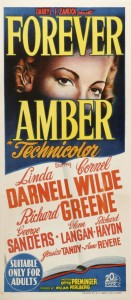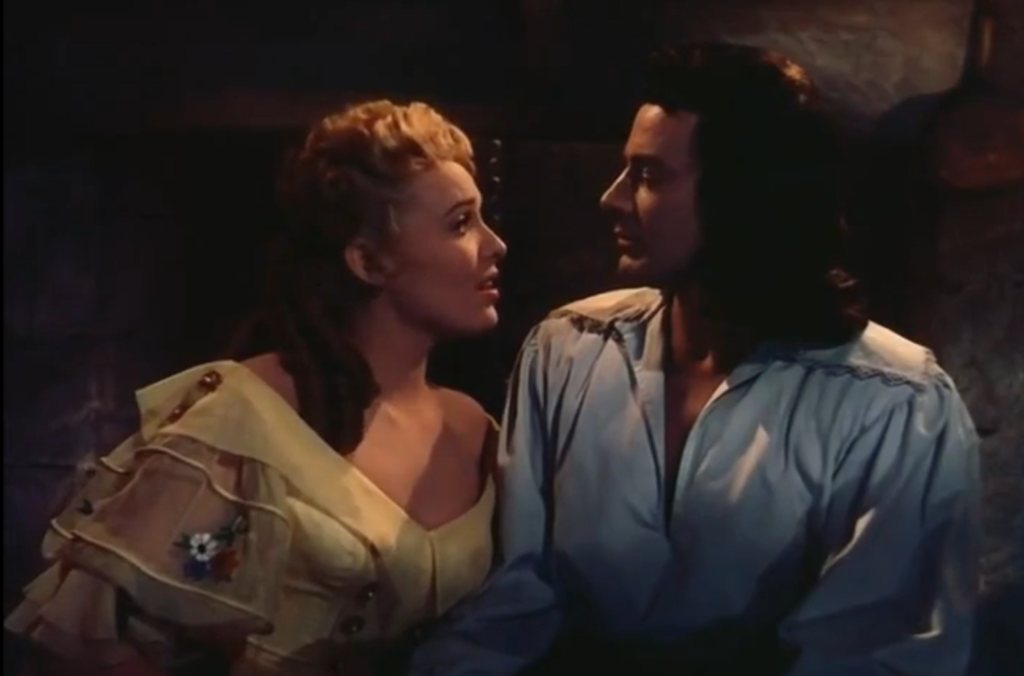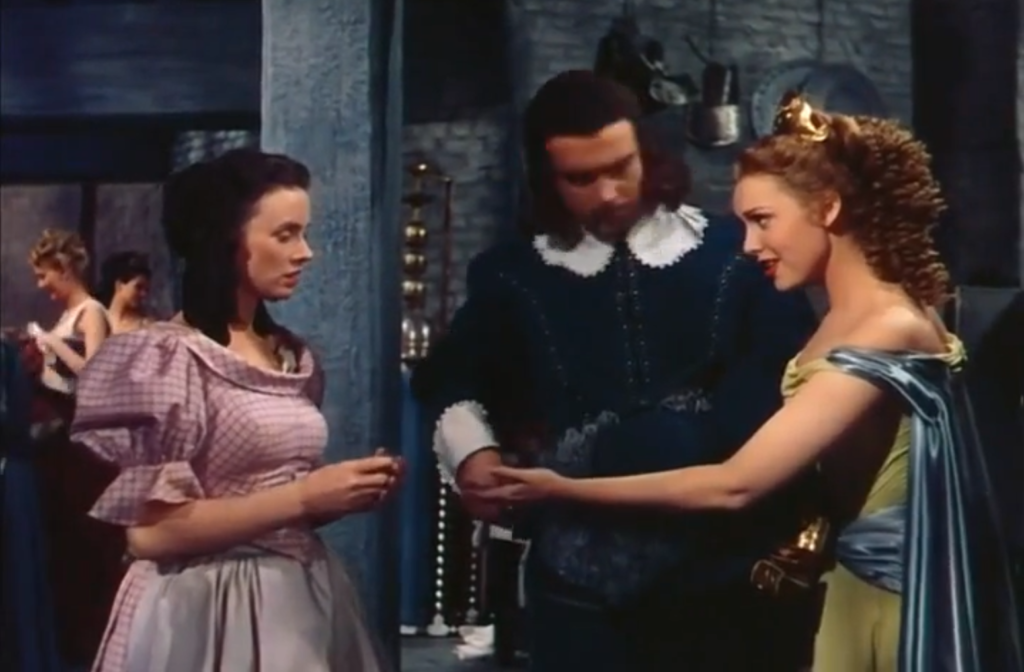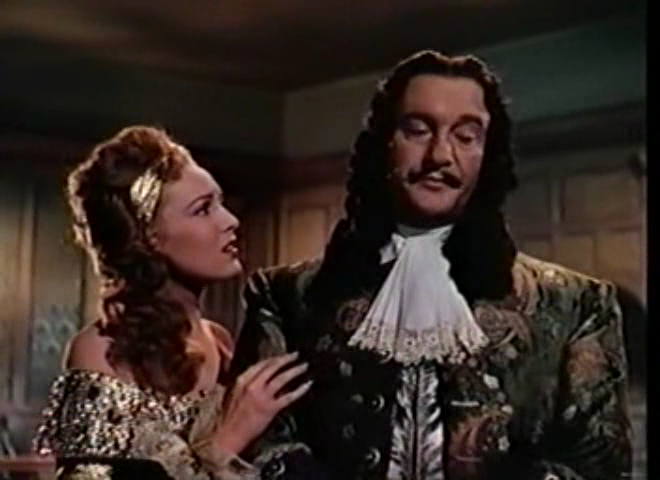Forever Amber (1947)
“She’s in love with her own ambitions; I’m only part of them.”
|
Synopsis: |
|
Genres, Themes, Actors, and Directors:
Review: Meanwhile, the lengthy, overblown script — which attempts to cover the novel’s 900+ pages in 138 minutes — often drags, leading one to concede that Amber DOES last “forever”. Yet I’ll admit that eventually (in classic “page-turner” fashion) I found myself caught up in Amber’s fate, and curious to see what situation she would get herself into (and out of) next. Watch for a couple of noteworthy supporting performances: George Sanders is perfectly cast as hedonistic King Charles II; while his screentime is limited, he’s given some pithy zingers, and pulls off a couple of memorable later scenes with typically droll panache. Richard Haydn is equally effective in a small role as the older titled man Amber ends up marrying, for better or for worse. Note: Jessica Tandy appears in a small role as Amber’s prisonmate-turned-servant. Redeeming Qualities and Moments: Must See? Links: |






One thought on “Forever Amber (1947)”
A once-must, as a compelling example of ‘costume drama’.
Hadn’t seen this til now but, in my opinion, it’s not always that easy to create a costume drama and keep it from being turgid. At times, it seems, the emphasis of such films can actually be on the costumes! I know this film has split audiences to some degree. (Preminger is quoted as saying it’s the worst picture he ever made; I wonder if he said that before or after the latter part of his career.) I can’t say I went into this film with real anticipation. Which is why I was surprised to find myself swept up, without really feeling the passing of time.
I’ve not read the book. (According to Wikipedia, the original manuscript was close to 5,000 pages, edited down to just under 1,000 for publication.) I could sense compression at times, but I was struck by the refreshingly literate quality of Philip Dunne and Ring Lardner, Jr.’s screenplay (the dialogue is often wonderful to the ear), and did not feel at all lost. As well, there’s significant contribution by DP Leon Shamroy and Lyle Wheeler (art direction), and David Raksin’s remarkable score augments in a way that keeps us engaged with each new, sudden development.
And what developments! ‘FA’ certainly provides all of the staples of this kind of entertainment and you almost can’t guess what’s going to happen next. ~tho, whatever it is, it always impacts on the relationship of the main two characters. Unlike their obvious counterparts (Scarlett O’Hara and Rhett Butler), I didn’t feel the need for richer characterizations of Amber and Bruce. Not only would that have taken an extra two hours (as is the case with ‘Gone With the Wind’) but – to me, anyway – it’s the story that’s the thing. (Although I will add that, towards the end of the film, Amber does become suddenly complex and contrary in a Scarlett-like way.)
I’m not particularly bothered by the chemistry between Darnell and Wilde. I think it’s sufficient for the film’s purpose, even if they aren’t a couple you want to root for in any particular way. To me, they seem to serve to anchor the mechanics of the (film) story’s engine. But the supporting cast certainly does pick up the acting slack. Without naming them outright, they collectively appear to be right at home and fully aware of the costume drama style.
I find the depiction of Amber’s theater stint esp. effective, believably showing audiences as typically not necessarily surrendering to a play with rapt attention. (Note the young woman going through the audience vocally selling oranges.) It’s a wonderful moment when Sanders (again terrific) arrives late for a performance: as he takes his seat, the action onstage ceases and the actors – and the entire audience – turn to bow respectfully to the king…and then the show continues. (It’s also a revealing touch later when Haydn is speaking with a couple and explains that he has forgiven Amber, now his wife, for her former life as an actress – for “exhibit[ing] herself on the public stage”; the implication being that “actress” is only a slightly more respectable word for “whore”.)
You may not find yourself going back to this one, but I’d say it’s definitely worth a look.